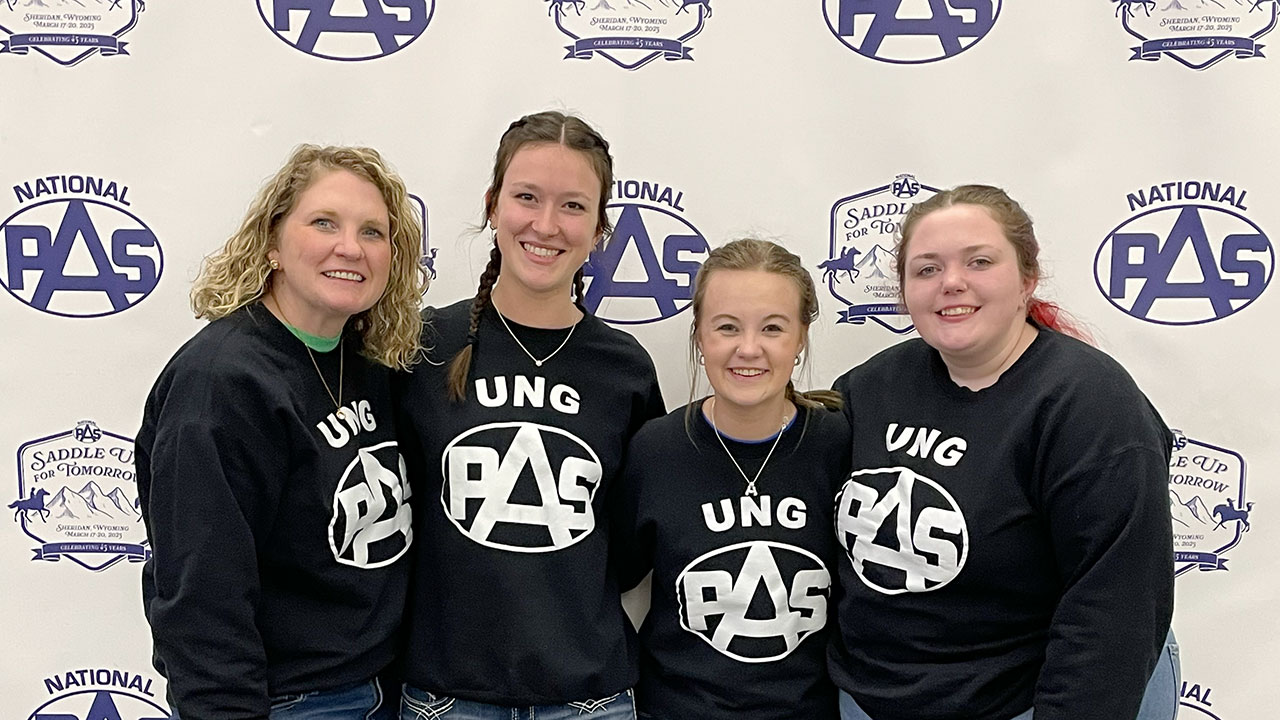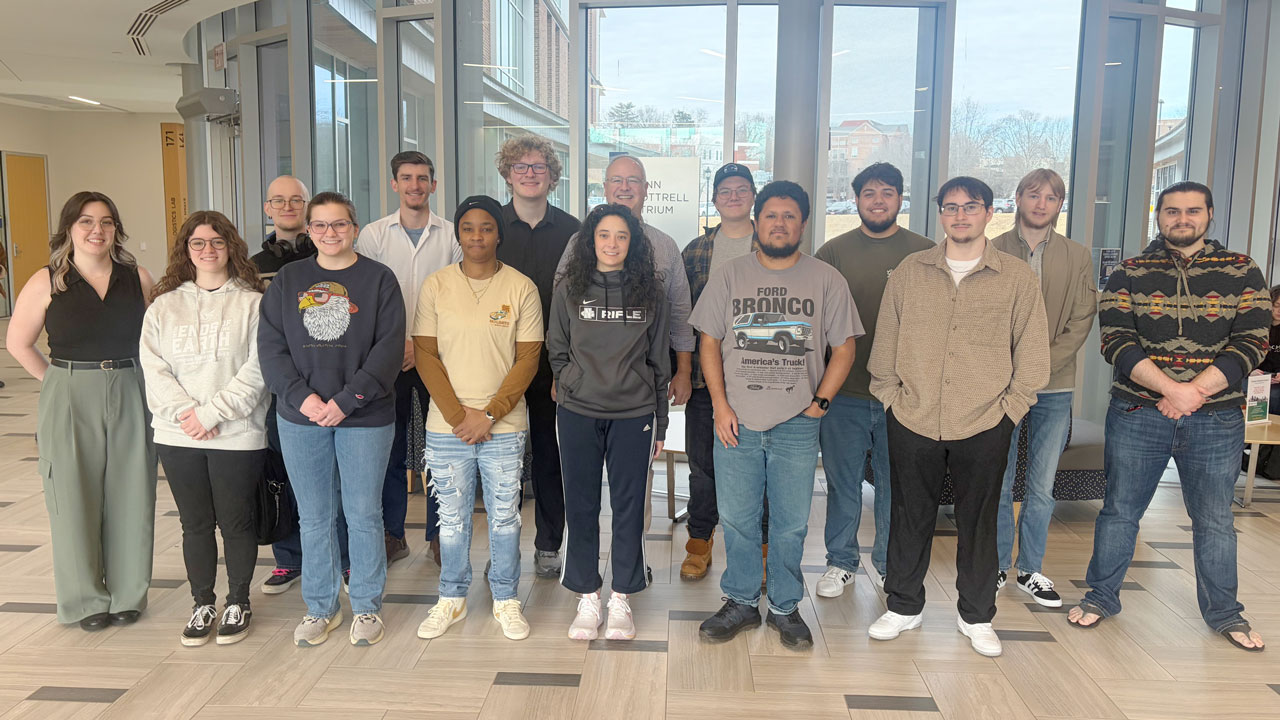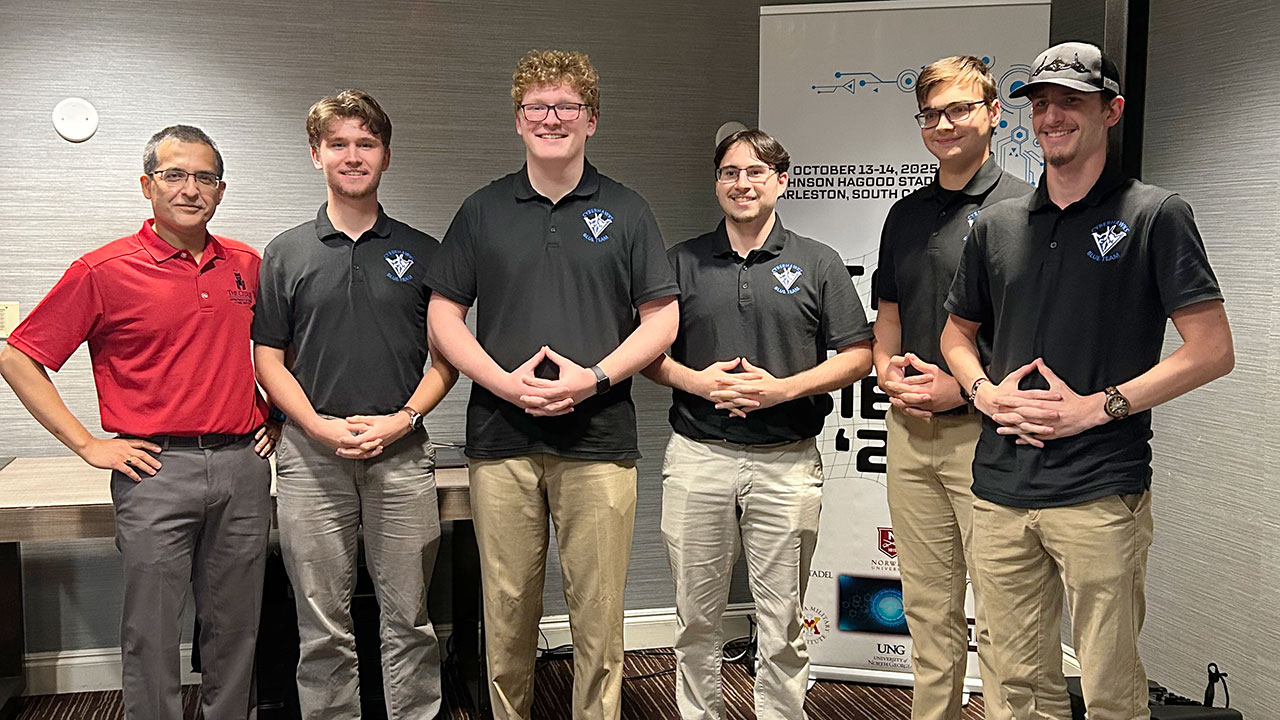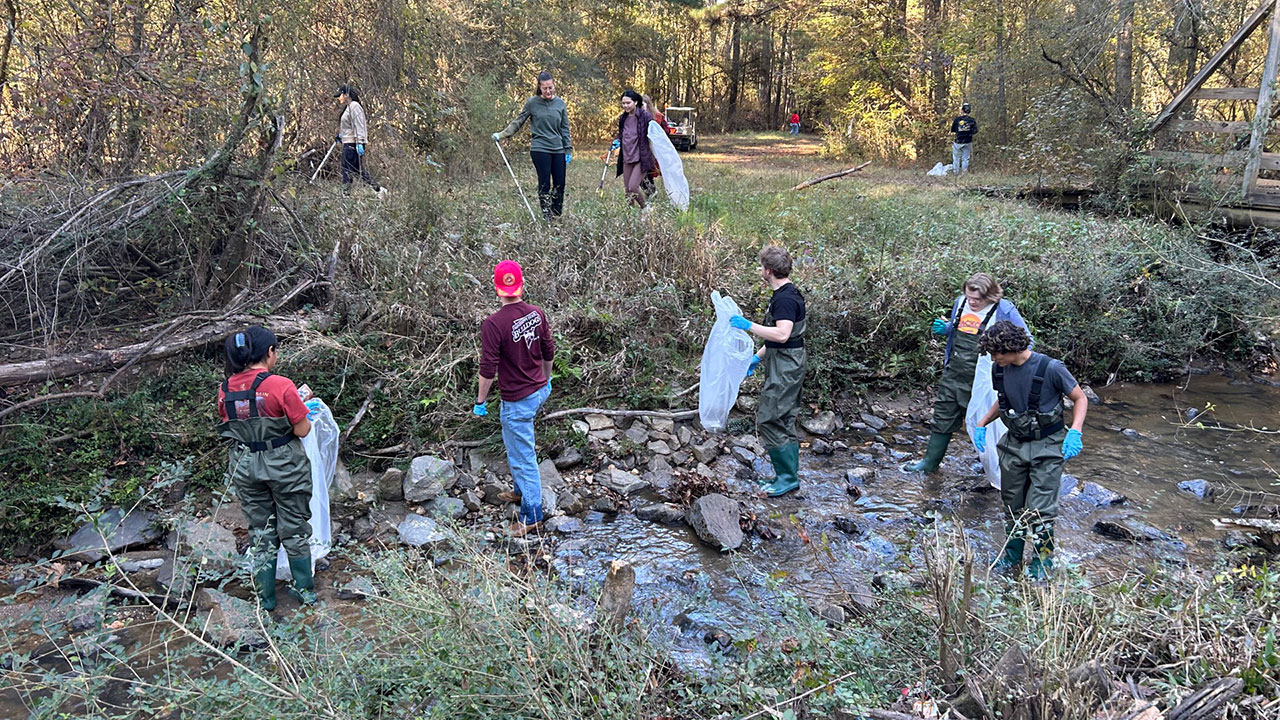Presidential Award, grant help expand Oconee Campus garden as teaching tool

What started as a garden to provide fresh produce for the University of North Georgia (UNG) Food Pantry on the Oconee Campus continues to add new features, even as it retains its original mission, as the Adcox-Brantley Pollinator Research Garden.
The space now serves as a pollinator garden and outdoor lab with Susan Brantley, senior lecturer of biology, and Dr. Gary Adcox, director of campus success and strategic initiatives, leading the way.
It also has been added to the Rosalynn Carter Butterfly Trail, which is named for the former first lady of the U.S. and Georgia. The trail begins at the Plains, Georgia, home of former President Jimmy Carter and Rosalynn Carter.
The garden is also now a certified Monarch Garden through the North American Butterfly Association.
A UNG Presidential Incentive Award for Innovation earned this spring will aid Brantley and Adcox in developing the garden as a teaching tool. UNG President Bonita Jacobs funded 27 research-related projects this academic year with a total of $192,000.
Adcox and Brantley envision using the garden to teach courses in biology, social sciences and mathematics.
Brantley currently uses the garden for an environmental science course lab. Previously she had to rely more on field trips, but now her students can view plants, pollinators and composting in action on campus.
"It is great to have this place that is close-by," Brantley said.
UNG used the garden to participate in the Great Georgia Pollinator Count in fall 2020. Inclusion in the Rosalynn Carter Butterfly Trail keeps Brantley busy documenting which pollinators have visited and what other pollinator-friendly plants could be added.
In addition to the corn, okra and tomatoes that fill the UNG Food Pantry and are given to food banks in the surrounding community, Adcox and Brantley plan to add blackberries and blueberries.
"The garden started as way to get fresh vegetables into the food pantry. It's never lost those roots," Adcox said. "We want to keep expanding the garden. The Presidential Incentive Award will help with adding fruit."
A Liberal Education and America's Promise (LEAP) into Action Grant awarded to Adcox helped him plant the garden initially. Then Adcox and Brantley were awarded a second LEAP into Action grant to help launch the pollinator and lab elements.
Adcox said one of the goals is to move some of the flowering plants to provide a more convenient walkway through the garden.
"We want to make space for people to appreciate what's growing here," Adcox said.
Dr. Cyndee Perdue Moore, executive director of UNG's Oconee Campus, joked that some may think she, rather than Adcox and Brantley, has brought the garden to life because of her immense pride in the project.
"It's such a lovely addition to our campus," Moore said. "It expanded in 2020 during COVID-19 when a lot of things felt bleak and hopeless. This brought a lot of joy. It added a new center of life to our campus. It came at a time when we needed to remember that kind of beauty. I'm looking forward to students being more involved again with the garden."
Adcox, Brantley and Moore are grateful for those who have already partnered with the garden and look forward to forming other relationships that grow the garden's reach for food production and teaching. Anyone interested in learning more about how they can become more involved with the garden can email gary.adcox@ung.edu. Donations to help sustain the project are also accepted through the UNG Foundation. Those interested in making a monetary donation can email cyndee.moore@ung.edu.
"We look forward to the garden being here for many years to come," Moore said.



